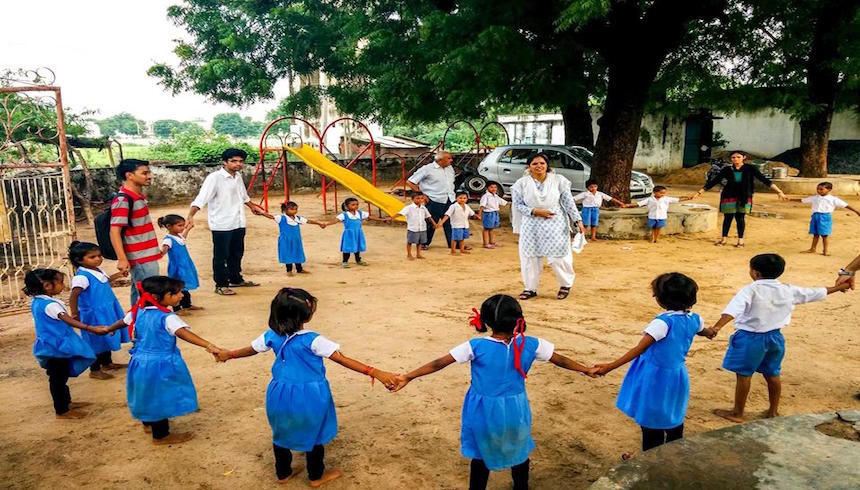Legal Aid:
Society is guilty if anyone suffers unjustly
Legal Aid indicates free legal service to poor people who cannot afford to approach big law firms that advice opulent people or thriving companies. At times, these poor people do not even have the money to approach smaller law firms or individual lawyers and as it is spiteful to leave them in that position, the concept of legal aid was introduced. The idea was first run up the flagpole in Britain back in 1944.
The legal sanction for such a concept comes from Article 39A of the Indian Constitution that promotes justice on the basis of equal opportunities. Article 14 and 22(1) as well promote equality before law. The Indian Government started deliberating on giving free services to the poor in 1952. A committee was set up in 1980 at the national level with Justice P.N.Bhagwati as its chairman.
Lok Adalats:
Subsequently, Lok Adalats were instituted as one of the manmoth accomplishments in the history of Legal Aid. In 1987, Legal Services Authorities Act was enacted. Under the act, National Legal Services Authority (NALSA) was also constituted to provide free legal services to poor and to establish Lok Adalats for amicable settlement of disputes.
Justice P.N.Bhagwati and Justice Krishna Iyer have contributed immensely to this field. According to Krishna Iyer, ‘it is a catalyst to re-asset state responsibility’ and according to P.N.Bhagwati, its ‘equal justice in action.’ The Committee on legal aid headed by Krishna Iyer listed out the people eligible for legal aid in its report submitted in 1973.
Further, the categories of people in Section 12 of Legal Services Authorities Act are as follows: poor in general, victim of human trafficking, mentally ill or disabled persons, victim of mass disaster, an industrial workman, person in custody, person with annual income of less than 9000 or such other prescribed amount if the case is before any court other than Supreme Court and 12,000 or such other prescribed amount if the case is before the Supreme Court. Now, the extent has been increased to Rs.50,000.
Relevant Case Laws:
Article 21 was associated with Legal Aid in the Hussainara Khatoon Case, the court held that ‘there can be no doubt that speedy trial, and by speedy trial, we mean reasonably expeditious trial, is an integral and essential part of the fundamental right to life and liberty enshrined in Article 21’.
It was also held in Khatri and Ors v State of Bihar and Ors that the state is bound to provide legal service to the accused not just at the stage of trial but also when he is first presented before the Magistrate and from time to time when needed and this cannot be denied on the basis of financial constraints or administrative inability. In fact, the magistrate has to make sure that the accused is aware of such a right.
In Sukhdas v. Union Territory of Arunachal Pradesh, Justice Bhagwati made a very critical observation. He said ‘Now it is common knowledge that about 70% of the people living in rural areas are illiterate and even more than that percentage of the people are not aware of the rights conferred upon them by law. Even literate people do not know what are their rights and entitlements under the law. It is this absence of legal awareness which is responsible for the deception, exploitation and deprivation of rights and benefits from which the poor suffer in this land….. This miserable condition in which the poor find themselves can be alleviated to some extent by creating legal awareness amongst the poor. That is why it has always been recognized as one of the principal items of the program of the legal aid movement in the country to promote legal literacy. It would be in these circumstances made a mockery of legal aid if it were to be left to a poor, ignorant and illiterate accused to ask for free legal service, legal aid would become merely a paper promise and it would fail of its purpose.’
Therefore, due to a several judgements like these, there was beating of drum for legal aid as a fundamental right and not just as a service given to the poor.
Amendments to Legal Services Act:
There have been various amendments made recently to the Legal Services Authorities Act, 1987 with the establishment of Permanent Lok Adalats having a chairman and having jurisdiction over one more public utility services. Lok Adalat has percuniary jurisdiction of 10lakhs. Also, before the dispute is brought before court, an application should be filed before the Lok Adalat. Lok Adalat may formulate the terms of possible settlement and it shall be final and binding. These are some of the important amendments brought about.
Even though, the 1987 Act was enacted in order to diminish the wrench in the works of providing legal services, there are major drawbacks in the existing stratagem of Legal Services. Therefore, the Act has failed to tackle with this particular social problem completely. Some of the major impediments are lack of funding, infrastructure, transparency and accountability, poverty, illiteracy and ignorance. There are several ways in which some of these problems can be attempted to solve. I shall be discussing some of them below:
Criticisms:
(i) Increase funds:
It was mentioned by Mr. U.Sarathchandran, Member Secretary of NALSA in the Workshop Report, that the funds allotted to the Authority are not sufficient. Legal Services being one of the most crucial services and also one of the most intrinsic rights of an individual, the government must concentrate on allocating sufficient funds for proper functioning of the Authority.
(ii) Increase Transparency and Accountability:
It is important to make sure that NALSA monitor the expenses of State Legal Services Authorities since there have been instances where budget lapses and money remains unused. Mr. Sarathchandran expressed how help from the UNDP to go digital would help keep track of accountability.
(iii) Improve Infrastructure:
There have been complaints of insufficient infrastructure. Government should make sure that these legal services authorities are in correspondence with civil societies so that they could make available their resources.
(iv) Promote Alternate Dispute Resolution:
One of the major predicaments in Lok Adalats is that, the settlement is made based on the parties coming to a compromise or settlement. If they do not, then it is transferred to the regular courts. Instead, if Lok Adalats decide the cases on merits, then a major chunk of burden could be reduced from the regular courts. If the issue is about public utility services like electricity, water etc., it should be solved without having to litigate since these are important but petty cases and time should not be wasted by entering into litigation for the same.
Conclusion:
If the Act is amended to encompass the above solutions, there could be some hope of bringing about a positive change in the dispensation of legal services. All these are some of the assumptions made by people as to reasons why the Act failed in achieving its object but it is necessary for the Government to research on the veritable quandary in the path of legal aid dispensation and jot it down systematically in order to bring about the necessary changes.
Apart from these, it is cardinal to spread awareness to the poor and to people in the rural areas about their right to free legal services. Legal services should not be considered as something that is done as a favour, but it should also be made imperative for all the experienced lawyers to take up some cases of the poor for free. Also, it is essential to make sure that students in law schools are aware about the extent to which a service like this could help develop India, help the poor as well as lower the burden of regular courts after all most of these young minds join law school to help the society in one way or the other.
Picture Courtesy: Wikimedia







